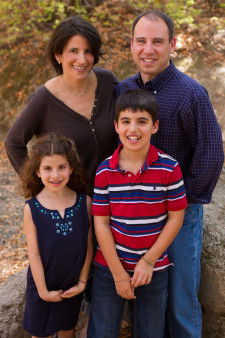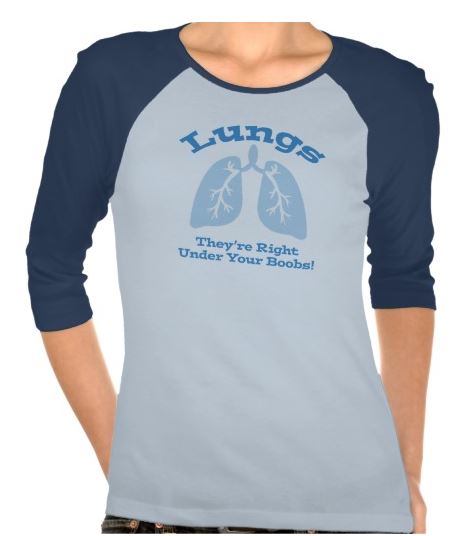“Every Last One of Us Can Do Better Than Give Up” (Following Up with Cheryl Strayed)
A couple weeks ago, I wrote a blog titled Where Have All the Lung Cancer Celebrities Gone? Someone tweeted the blog to Cheryl Strayed and asked “Why the change [from mentioning your mother’s lung cancer diagnosis in the book to omitting it] in the film?” Amazingly, Cheryl responded (across 3 tweets because Twitter is the most annoying way to communicate ever):
“I didn’t think of it that way! I talk about lung cancer every chance I get. The film demanded concision on many fronts. The decision to not mention the specific type of cancer didn’t have anything to do with the type of cancer it was. But I AGREE SO MUCH with you that lung cancer is shamefully ignored.”
I was thrilled. My blog worked! We actually got the attention of a public figure. Then I learned that Cheryl was scheduled to speak nearby the next week. Kismet! I got on Facebook and sent a plea:
“Hey Cheryl! Do you have time to meet for a few minutes before or after your Stanford talk?”
I waited with bated breath. Nothing. I pinged again. And then came the polite, but definite, brush-off:
“ … I don’t have time to meet. I’m involved with lots of causes and charities and right now I’m too swamped to take on anything more … Good luck…”
Kudos to a woman who knows how to say “no.” There’s a million worthy causes out there that can benefit from the exposure a public figure can bring. Cheryl can’t support them all, and she’s certainly entitled to prioritize whichever she chooses. I get that. Still, I couldn’t help but feel disappointed, and then I quickly shifted to that less flattering second stage of disappointment: anger.
I began stewing and drafting all sorts of responses in my head: “What’s that you say? The word ‘lung’ had to be cut from the movie for concision? Come on. Obviously, omitting one word didn’t really impact the length of the film. But that proves my point: it’s not just one word, it’s a loaded word. To say it in the film with no further explanation might make the character less sympathetic due to the stigma. So I’m guessing it was omitted, perhaps subconsciously, because the filmmaker didn’t want to deal with either of those consequences (a less sympathetic character, or taking the time to give more context about lung cancer). No one has an obligation to advocate for lung cancer, but let’s at least be honest, Sugar. That word was not cut for concision. That word was most likely cut because of a stigma so powerful and pervasive, sometimes we’re not even aware that we’re perpetuating it. If you’re not speaking out about it, you are part of the problem.”
I ranted to Eric about this and he told me to chill the f*^% out. He told me Cheryl’s response was completely reasonable, polite even, and I needed to let it go.
But then he told me a story. After I was diagnosed, Eric needed to cut back on work obligations, so he stepped down from some of his administrative duties. His employer posted an announcement about this, which Eric helped draft. At Eric’s request, the announcement expressly mentioned that the reason for stepping down was my lung cancer. However, an early draft struck that reference because the marketing person thought it wasn’t relevant. Eric insisted the detail stay in — it was the furthest thing from irrelevant, it was the primary reason for his job change. By making the editing change to remove the reference, no one was intentionally trying to perpetuate the stigma of lung cancer (in fact, everyone at Eric’s employer has been extremely supportive). Still, it takes a conscious effort to notice when it’s happening and resist relegating it to the shadows like a shame-worthy secret.
Luckily, I took Eric’s advice about Cheryl Strayed. I did chill out and move past the anger stage to acceptance. Even though I knew she didn’t have time to meet with me, I went to hear Cheryl speak at the nearby event anyway.
As I sat in the audience waiting for Cheryl to appear, my companion, a fellow lung cancer patient, silently pointed to the paper with Cheryl’s bio that had been handed to us as we entered the auditorium. It began, “At age 22, Cheryl Strayed found herself shattered by two major life events: her mother’s sudden death from cancer and the end of her young marriage.” I nodded. There it is isn’t again. The unspoken word. Was it cut for concision this time, too? Ah, well. It’s everywhere once you start to notice it. I didn’t have the energy to get upset again.
I listened to Cheryl with an open heart. I cried several times when she spoke about her mom, as, yes Arash, it hit very close to home. In spite of it all, I felt very positive and warm feelings toward her by the end of the night. I am a fan. At the conclusion of the event, I ran up to the stage. I was all tears and awkwardness as I thrust a gift in her hands. I gave her a Lungs. They’re Right Under Your Boobs! shirt along with the letter below. Here’s hoping it makes an impact. If not, there’s still George Clooney…
_______________________________________________________________________________________
Hi Cheryl,
“Every last one of us can do better than give up.”
I picked up Tiny Beautiful Things: Advice on Love and Life from Dear Sugar a few days ago, and when I opened the cover, that was the first quote I saw. I figured maybe it’s a sign. I know you said you don’t have time to spare for lung cancer advocacy work right now, and I respect that. But, I can still do better than give up, right?
I read your book Wild: From Lost to Found on the Pacific Crest Trail a while ago, about 2 years before I was diagnosed with lung cancer. When the movie came out, I mentioned to a friend that I wanted to see it and he said, “Don’t do it – it’ll hit too close to home.” I didn’t know what he meant. I had no recollection that your mother had lung cancer. I’m sure, at the time of reading, I dismissed that detail as irrelevant to me, a healthy never-smoker.
I must be particularly dense, because a little later, about a year before I got my diagnosis, I heard about a friend of a friend with lung cancer. She was a 34 year old woman; a healthy non-smoker. I followed her story in an almost superstitious fashion – the way you carry an umbrella so it won’t rain, the way I’m sure some people read my blog now. I hugged my kids tighter and thought to myself, “I’m making Oprah proud. I’m getting the message when it’s a whisper and not a brick to the head. Life is precious and fleeting. Focus on gratitude. Yada, yada, yada.” Except, I misunderstood the message. I still didn’t really get that *I* could get lung cancer. Appreciate life all you want, but get a motherfucking chest CT if the doctor can’t figure out why your cough won’t go away. Apparently, that was the lesson. Ok, I think I got it now. Fuck.
But, how can I help others get the message? Lung cancer is the #1 cancer killer worldwide, killing more than the next 4 types combined (it kills 2x as many women as breast cancer, 3x as many men as prostate) — and ⅔ of us are either never smokers or long time non-smokers. But, less than 1% of women even have lung cancer on their radar. And, lung cancer receives the least amount of funding of all the major cancers. It – or rather we, lung cancer patients – are slipping through the cracks, the equivalent of a jumbo jet filled with us, plummeting to our deaths every. single. day. Friends and family get tangled in the wreckage. “Lung cancer?” everyone asks. “I never realized,” so many people muse.
I blog because I’m trying to do my part to change this, to combat the stigma that lung cancer is only a concern for smokers, but my reach is limited. We need public figures to help raise visibility.
I know you have limited time to help, but should the opportunity arise, it would be so great if you could help raise awareness by mentioning any of the following facts:
- Lung cancer takes more lives than breast, prostate and colon cancers combined.1
- 1 in 14 people will be diagnosed with lung cancer.1
- Nearly 80% of new lung cancer cases are former and never smokers – 20.9% current smokers, 60% former smokers, and 17.9% never smokers.1
- The 5-year survival rate of lung cancer is 16.8%. Breast cancer has advanced to 89.2% and prostate cancer to 98.9%.2
- Genetic predisposition may also play a role in lung cancer development.4
- Lung cancer kills more women than any other cancer— twice as many as breast cancer — and most die within a year of diagnosis.5
- Lung Cancer is the least funded cancer in terms of research dollars per death of all the major cancers, and one of the only cancers where patients are routinely blamed as responsible for their condition.5
Anywhoodle, I wrote a blog post back in November suggesting, sarcastically, that perhaps lung cancer could drum up a little more awareness & support if it tarted itself up like breast cancer. I proposed the slogan “Lungs. They’re Right Under Your Boobs!” I was joking, but I received requests for t-shirts. And, so, thanks to the modern miracle of Zazzle.com: voila! Here you go. I put some of the lung cancer facts on the back. Wear it to a public event sometime? Enjoy and all the best to you.
Thanks,
Lisa Goldman1 American Cancer Society. Cancer Facts and Figures 2013. Atlanta: American Cancer Society; 2013.
2 SEER Stat Fact Sheets. Surveillance Research Program, National Cancer Institute.
4 Atlanta: American Cancer Society; 2011.
5 Out of the Shadows: Women and Lung Cancer”, prepared by the Mary Horrigan Conners Center for Women’s Health and Gender Biology, Brigham and Women’s Hospital, Harvard Medical School, April, 2010


